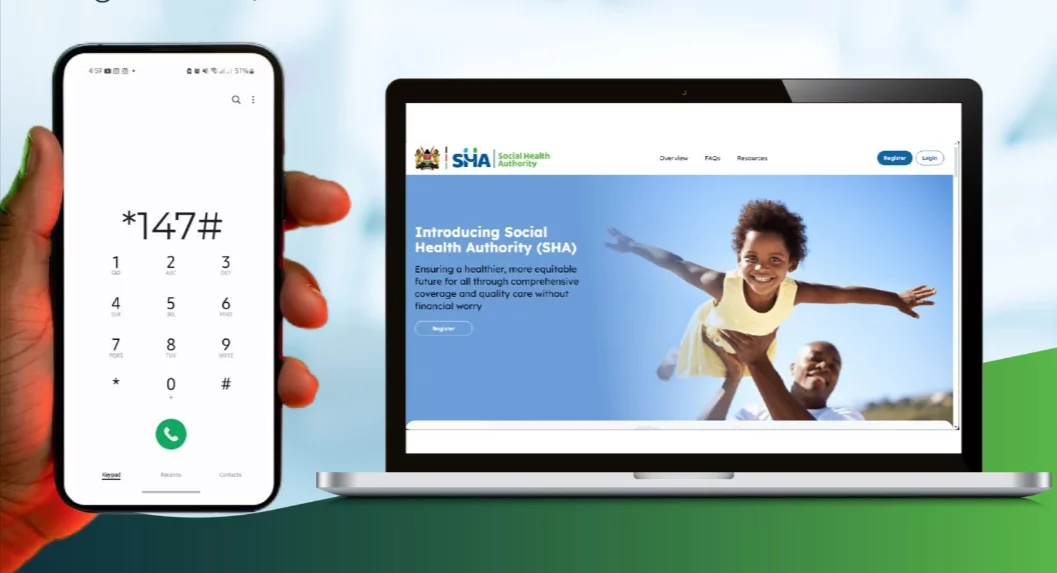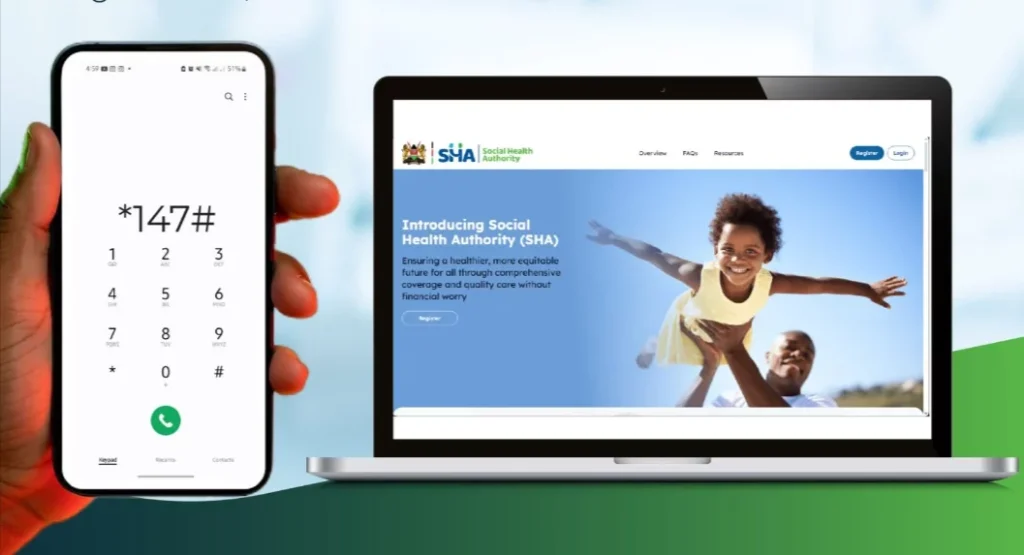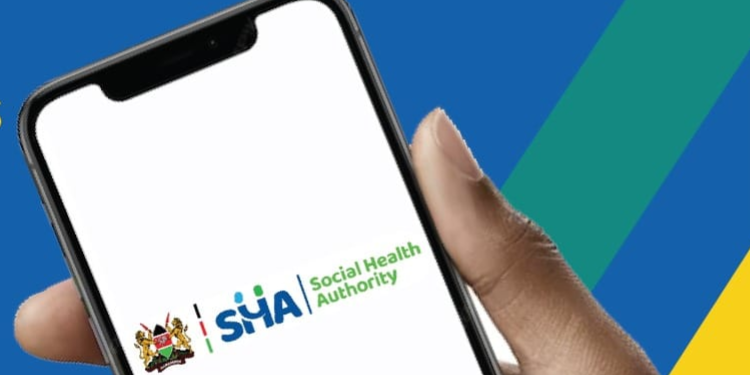Physical Address
60 Ekwema Cres, Layout 460281, Imo
Physical Address
60 Ekwema Cres, Layout 460281, Imo

Healthcare is a serious concern for every country, especially in African countries like Kenya. One of the ways the government sorts out the healthcare budget is through the Social Health Authority (SHA. Every Kenyan (and foreign resident) is required by law to register with the SHA and participate in the new health scheme.
The Social Health Authority (SHA) is Kenya’s new statutory body for universal health insurance. Established by the 2023 Social Health Insurance Act, the SHA replaces the old NHIF and pools contributions to provide health coverage to all residents.
In the course of reading through this writing, you will gain full knowledge of what the SHA is, how it works, how much it costs, how many people are on board, and – most importantly – exactly how to register yourself or your organization (including health facilities) with SHA.

The Social Health Authority (SHA) is a government agency created to oversee Kenya’s Social Health Insurance Fund. It was set up under the Social Health Insurance Act, 2023 (which repealed the old NHIF Act). The SHA’s role is to collect and pool insurance contributions from the public and to manage those funds in order to provide healthcare.
In practice, it contracts with a network of approved hospitals and clinics (public and private) to deliver care. The SHA guarantees that every Kenyan has access to a broad range of quality health services – preventive, promotive, curative, rehabilitative and palliative – under one unified scheme.
This includes services beyond what NHIF covered, such as intensive-care support and cancer treatment. In short, the SHA is Kenya’s way of moving toward universal healthcare coverage by replacing NHIF with a more comprehensive insurance authority.
Also check out How to Make Money Online In Kenya through Mpesa
Under the SHA system, everyone living in Kenya must register and pay into the health insurance fund. Contributions are determined by income: salaried workers and their employers deduct a fixed percentage of monthly pay, while self-employed and non-salaried households undergo a means test to set their premium.
Contributions are set at 2.75% of gross income (with a mandatory minimum of KSh 300 per month). Employers are responsible for deducting and remitting the contributions of formal-sector employees each month.
For example, a household earning KSh 100,000 pays KSh 2,750 monthly. Any payment delays incur penalties (around 2% of unpaid dues each month).
SHA contributions are invested in either one of three schemes: the Social Health Insurance Fund (SHIF) is general care, the Primary Healthcare Fund (PHF) is community healthcare and the Emergency, Chronic and Critical Illness Fund (ECCIF) is specialized care.
In effect, this means that essential services are covered at no extra cost to patients. In practical terms, once you’re registered and your first payment is made, you can seek care at any empanelled provider on the system (generally you start at a local clinic and then get referred to a county/level-4 hospital for specialized treatment).
Similarly, all surgeries are now included, and complicated conditions like cancer or high-risk maternity have enhanced coverage (e.g. maternity care now has an enhanced allowance of KSh 30,000).
Importantly, SHA membership is mandatory. Every Kenyan or legal resident must register for SHA within the prescribed period. Those who were NHIF members under the old system must register anew for SHA. This ensures their prior coverage can be transferred.
Once registered, beneficiaries get an SHA insurance ID which they use whenever accessing care at a facility. The SHA has set up digital systems so that all patient information is stored in an electronic platform (the Integrated Health Technology System), which providers consult when processing claims.
Read also: Best Online Loans in Kenya Via M-Pesa
Your SHA contribution depends on your income. For salaried employees, the rate is a flat 2.75% of gross monthly salary. For example, if you earn KSh 50,000 per month, your SHA deduction would be KSh 1,375.
Every employed person pays this alongside their employer’s contribution. The law sets no upper cap, but it does impose a minimum of KSh 300 per month per household. For self-employed or unemployed people, there is no fixed premium; instead, the SHA uses a Means Test tool.
After you register, you answer a series of socio-economic questions (about income, assets, household size, etc.), and the system calculates a fair contribution rate for you. In practice this usually ends up around KSh 300–800 per month on average.
In fact, government data showed that on an average day about 25,000 Kenyans did the means test, paying about KSh 800 each on average (totalling roughly KSh 20 million daily).
You make your contributions through approved channels. The simplest method is via M-Pesa: SHA has a special M-Pesa Paybill 200222, and you use your National ID number or insurance ID as the account number to pay.
(Mobile registration instructions explicitly note “SHA Paybill number is 200222, with your ID number as the account”.) Employers remit contributions for employees by the 9th of each following month.
Remember, failure to pay on time will attract a penalty (2% per month on the outstanding balance).
Registration numbers are already in the tens of millions. In a February 2025 briefing, the Ministry of Health reported that over 19.34 million people had registered with the SHA. That number grew quickly: by May 2025, official figures showed 22.165 million total SHA registrations.
(Of these, roughly 18.5 million were “active” participants who had completed means testing or formal enrolment steps.) These figures include both new registrants and many who carried over from the NHIF system.
These numbers constitute new sign ups as well as a considerable number who transferred over to the NHIF system. Infact, just about every qualified Kenyan has registered or is registering.
See also: 15 Online Surveys in Kenya That Pay Through Mpesa

Registering yourself or your family with SHA can be done in multiple ways. Here are the main options:
Go to the SHA Web site (sha.go.ke) or the Afya Yangu portal (afyayangu.go.ke) on your computer or Smartphone.
You do not need a data connection. On any Safaricom phone, simply dial *147#. C
If you prefer face-to-face help, visit any SHA office or Huduma Centre that offers SHA services. There a clerk will give you a paper registration form.
Steps to Register Online:
Hospitals and companies register differently.
For most Kenyans, visiting sha.go.ke and following the prompts will suffice to join SHA immediately. (Remember that your digital SHA membership is what you will use instead of the old NHIF card from now on.)
Check out the KCB Mpesa Loan After CRB Listing

The Social Health Authority is also recruiting staff to run its new programs. Vacancies are advertised on the official SHA recruitment portal. To apply:
Applying to SHA requires that you register on SHA careers site and post your application electronically. Don’t forget to check in frequently with new vacancies, as the Authority is still staffing up. The portal and SHA’s official channels will have the most up-to-date listings.
Applications can be submitted online on https://recruitment.sha.go.ke/or physically delivered to SHA building
SHA registers all eligible members, both employed and self-employed and upon registration, one is issued with SHA membership card
Every registered Kenyan will have access to the services under the primary healthcare fund, even if they have not paid the contributions
Registering with the Social Health Authority is essential for every Kenyan now that SHA has taken over our national health insurance. With these official measures, whether online, USSD, or in-person, you can easily enroll in the SHA scheme and get yourself and family medical coverage sorted quickly.
You have not yet done so, and now is the time to log on to sha.go.ke or to dial *147 and get your registration done.
Properly enrolling in SHA ensures you can take advantage of Kenya’s upgraded healthcare system from day one.